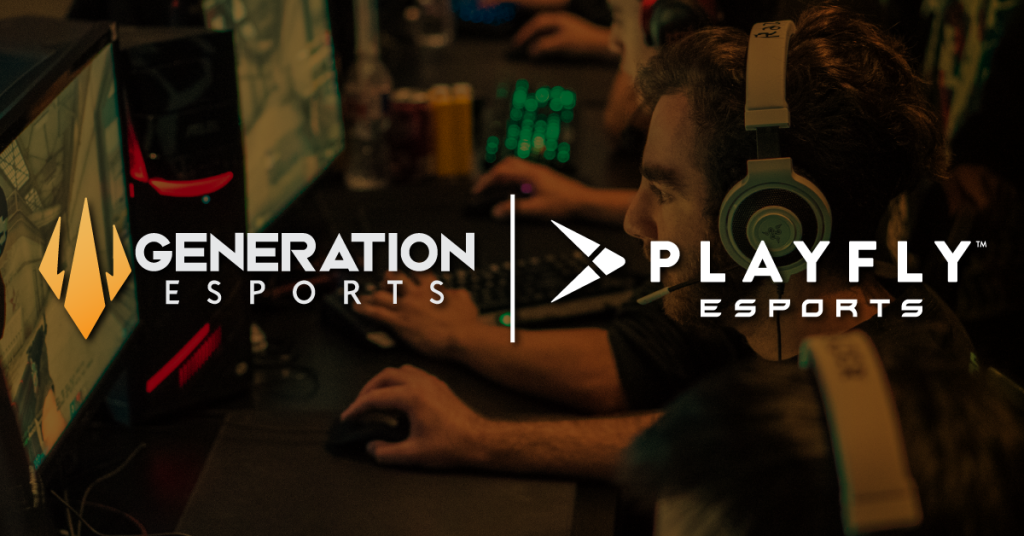
In August 2022, scholastic-focused esports platform Generation Esports partnered with media and advertising organisation Playfly Esports to offer a sustainable monetisation strategy for the high school esports space.
Under the deal, Playfly will commercialise and monetise the leagues that Generation Esports runs. Playfly Esports’ parent company operates in traditional sports advertising, working with state associations to handle and sell multimedia rights for colleges and high schools.
Playfly acquired CSL Esports in 2020 and rebranded it into Playfly Esports earlier this year, a move that sought to capture where CEO Rob Johnson said a lot of the under 35 viewership is going within its high school business.
“Stick and ball sports started to have a reduction in participation,” Johnson told Esports Insider. “Where is student athletics occurring? More and more, it’s in esports.”
Playfly already has multimedia rights partnerships with high school state associations in 13 states for traditional sports. “Adding on esports to that was a natural extension to us,” Johnson added.
Today, Playfly announced the addition of esports to its existing partnership with Oregon’s state high school association, the fourth of its high school rights partnerships to now include esports. Adding esports to its existing framework affords efficiency, Johnson explained.
“We have the relationships, we have people on the ground for traditional advertising, which helps stick and ball sports — for example your high school football state championship — bring in more partners to help fund and help reduce the cost to students.
“We bought Collegiate Star League [CSL], we were already making leaps and bounds on the college side. High school was a natural extension because we didn’t have to recreate staff from scratch.”
Generation Esports, which owns and operates the High School Esports League (HSEL), and Playfly claim the model offers a sustainable monetisation strategy for North American high school esports.
Their shared objective is to get its cost to students down to zero by eliminating entry fees, primarily by monetising media products, in order to allow the greatest number of students to compete. Generation Esports said the target of zero cost to the student could be reached as soon as next year, depending on the adoption rate of the schools.
But media rights aren’t the only piece of the puzzle the pair aim to solve. Generation Esports CEO Mason Mullenioux told Esports Insider that what truly differentiates them from others is the curriculum and education focus.
Generation Esports released a scholastic esports curriculum in June which grants schools that run it access to CTE [Career Technical Education] funding, alongside mental health and wellness grants. Each student that takes a course running the curriculum generates money for the schools.
“It’s a revenue driver, and that allows them to pay coaches and buy equipment year after year,” Mullenioux explained. “It’s what’s going to allow schools to create strong and solid foundations for years to come through pathways to funding that they normally wouldn’t have access to.
“If you combine both of those together, the states are happy, the schools are happy, the teachers are happy, because they’re all getting a piece of the pie and now it’s sustainable.”
A sustainable monetisation strategy for North American high school esports is a worthy goal, but one that has thus far proved elusive. The most prominent player in the high school esports market, PlayVS, charges entry fees of $64 (~£58) per student, which it propped up through exclusivity deals with publishers that force schools into using its platform.
However, PlayVS received widespread criticism from the scholastic community over its controversial model, leading to Riot Games severing its partnership and other developers distancing themselves from the platform.
“We’ve seen it done and we’ve seen a lot of failure in the space,” Mullenioux said. “Nobody’s really figured it out yet — and we think we have the correct formula. No one’s figured out how to make it sustainable and we believe we have the key to make it sustainable.”
The partnership ultimately goes beyond just monetisation, or even just education, Playfly and Generation Esports claim. Mullenioux was quick to reel off statistics about the impact of their curriculum and gaming in the high school space, and the results are incredible.
He claimed self-esteem scores, from baseline to final measure, increased 7%, 12% and 39% for male, female and LGBT students respectively. “We’re really proud of that and I think that that brings a lot of value to this partnership, especially when we’re going to states and saying ‘hey, why should you trust us?’,” Mullenioux concluded.
As schools across North America look to tap into the dramatic growth of esports at the high school level, and the scene opens back up following Riot’s U-turn on exclusivity, effective student-first monetisation strategies offer significant growth opportunities.
Generation Esports and Playfly think they’ve found a solution that is sustainable, backed by education and — importantly — doesn’t obstruct the use of esports as an educational tool in pursuit of commercial growth.

